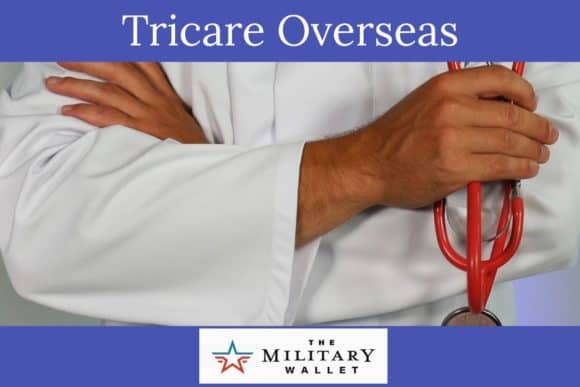Receiving orders for an overseas assignment can stir up a flurry of new, previously unconsidered questions. Where will I live? What schools are available for my children? How do we overcome language barriers? Chief among these questions is: What health care options are available overseas? Tricare Overseas hopes to make the process easier by providing health care coverage to uniformed service members and their families.
The Tricare Overseas Program (TOP) began in 1995 and has since expanded its global reach to include over 200 countries. Much like its domestic counterpart, beneficiaries living overseas can choose Tricare plans options based on their location, status and individual preferences.
Tricare Overseas Top Five
- Three options for overseas care: Active-duty members and their eligible family members may be able to choose among Tricare Prime Overseas, Tricare Prime Remote Overseas or Tricare Select Overseas.
- Three regions: Since Tricare Overseas provides health care in over 200 countries, it is organized into three administrative regions: Eurasia-Africa, Latin America and Canada and Pacific.
- Expect to pay upfront: Unless you or your family members are being treated at a military treatment facility (e.g., base or installation), it is common to have to pay for services upfront and request reimbursement from Tricare. Be sure to keep hard copies of all invoices, receipts or bills for out-of-pocket expenses.
- Call Tricare Overseas to find in-network providers: Receiving health care via in-network providers will help to mitigate out-of-pocket costs as well as the administrative burden of submitting claims.
- Translation services available: International SOS offers over-the-phone translation services and medical record translation for active-duty families in non-English speaking countries.
What is Tricare Overseas Program (TOP)?
The Tricare Overseas Program is the health plan available to U.S. uniformed members and their eligible family members living outside of the United States (including U.S. territories). There are three distinct health care plans under the Overseas “umbrella”: Tricare Prime Overseas, Tricare Prime Remote Overseas and Tricare Select Overseas. Both Prime options are nearly identical to Tricare Prime and operate like a HMO: Most care is delivered via a primary care manager (PCM), and referrals are required by the PCM for specialist visits. Tricare Select Overseas shares the same features as Tricare Select: In exchange for higher out-of-pocket costs, beneficiaries do not rely on a PCM and have greater freedom of choice in selecting providers and managing their own health care.
In order to more effectively manage all OCONUS beneficiaries, Tricare Overseas is broken down into three large geographic areas: Latin America and Canada, Eurasia-Africa and the Pacific.
Eligibility and Costs
Am I Eligible?
Active-duty service members, as well as activated Guard and Reserve members with overseas orders are automatically eligible for Tricare Overseas Prime or Tricare Overseas Prime Remote, depending on their locations. Active-duty family members are also eligible for the Prime or Prime Remote options, as long as their information in DEERS is up to date and they are listed on the service member’s overseas orders (e.g., command-sponsored).
However, active-duty family members can also choose to enroll in Tricare Select Overseas, which is a more expensive option but also provides more flexibility with regard to choosing a provider.
What Are the Costs?
The costs for all three Tricare Overseas plans (Prime, Prime Remote and Select) are largely similar to their domestic equivalents.
Prime and Prime Remote have lower out-of-pocket expenses, no enrollment fees and no annual deductibles. Additionally, there are no out-of-pocket costs if care is rendered by a primary care manager or a specialist to which you have been referred by your PCM.
Tricare Overseas Select, on the other hand, requires enrollment fees (except for active-duty family members), an annual deductible and co-payments. A full breakdown of costs is available on the Tricare website. Beneficiaries of the Select option frequently pay for service upfront, and then submit claims to Tricare for reimbursement. Although referrals are not required for Tricare Overseas Select, it’s always a good idea to call a Tricare Overseas area office in advance of an appointment in order to ensure that specific services will be covered.
If you choose to seek care from an out-of-network provider, you should be prepared to shoulder the full cost upfront, and then file a claim with Tricare. If payment is required in a foreign currency, beneficiaries must state this on the claim, and any reimbursement will be issued in U.S. dollars, calculated based on the exchange rate for the day of services. Proof of payment, such as a receipt or an itemized bill, is required.
Finally, for prescription drugs, all Tricare Overseas beneficiaries who are filling prescriptions at locations other than military treatment facilities will have to pay the costs upfront, and then request reimbursement for covered drugs. Prime Overseas and Prime Remote Overseas beneficiaries will receive a full reimbursement if using an overseas pharmacy to fill prescriptions, while Select Overseas beneficiaries must pay a deductible plus cost shares for drugs.
How to Enroll
As with all Tricare plans, a necessary first step is to ensure that your information — and that of your family members — is updated in DEERS. This is especially important for Tricare Overseas, since eligibility is determined by having orders at OCONUS locations.
In order to enroll in any of the Tricare Overseas options, it’s necessary to call the Tricare Service Center that oversees your particular region and to submit the required enrollment forms. Keep in mind that enrollment is only possible during the annual fall Tricare open season (Nov. 8 – Dec. 13, 2021) or during a qualifying life event (which includes moving overseas).
Who Manages Tricare Overseas?
International SOS is the contractor that provides global health care services for Tricare Overseas Program beneficiaries. International SOS can be contacted in order to find in-network providers, submit claims and check on the status of reimbursements. International SOS is also responsible for managing relationships with in-network providers; however, it is worth noting that not all in-network providers offer the same level (or quality) of services. For example, just because a given care provider appears to be in-network does not mean that they are frequently visited by Tricare beneficiaries (expect to have to explain what Tricare is) or that they speak English. It is highly advisable, therefore, to carry the phone number for your regional area office with you at all times.
Important Tricare Overseas Resources
Below are helpful phone numbers to have on hand for each of the TOP Regional Call Centers:
- Eurasia-Africa: +44-20-8762-8384 (Overseas) / 1-877-678-1207 (Stateside)
- Latin America and Canada: +1-215-942-8393 (Overseas) / 1-877-451-8659 (Stateside)
- Pacific (Sydney): +61-2-9273-2710 (Overseas) / 1-877-678-1209 (Stateside)
- Pacific (Singapore): +65-6339-2676 (Overseas) / 1-877-678-1208 (Stateside)
Overcoming Language Barriers
Fortunately, International SOS offers over-the-phone translation services for active-duty families receiving care in non-English speaking countries. Having personally availed of this service, I can attest that it is highly convenient to have access to International SOS’s network of native speakers. Additionally, active-duty service members and their families can get their entire medical records translated, which is a valuable service to take advantage of prior to moving back to the United States.
Active-duty servicemembers (or activated Guard and Reserve members) and their families may be far from home, but the Tricare Overseas Program is there to make health care one less thing to worry about.




About the comments on this site:
These responses are not provided or commissioned by the bank advertiser. Responses have not been reviewed, approved or otherwise endorsed by the bank advertiser. It is not the bank advertiser’s responsibility to ensure all posts and/or questions are answered.